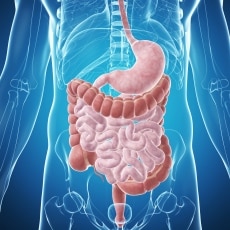
Gastrointestinal Diseases

Summary
When you eat, your body breaks food down to a form it can use to build and nourish cells and provide energy. This process is called digestion.
Your digestive system is a series of hollow organs joined in a long, twisting tube. It runs from your mouth to your anus and includes your esophagus, stomach, and small and large intestines. Your liver, gallbladder and pancreas are also involved. They produce juices to help digestion.
There are many types of digestive disorders. The symptoms vary widely depending on the problem. In general, you should see your doctor if you have:
- Blood in your stool
- Changes in bowel habits
- Severe abdominal pain
- Unintentional weight loss
- Heartburn not relieved by antacids
NIH: National Institute of Diabetes and Digestive and Kidney Diseases
Source: MedlinePlus, National Library of Medicine.
Information pulled from the Digestive Diseases page.
MedlinePlus brings together authoritative health information from the National Library of Medicine (NLM), the National Institutes of Health (NIH), and other government agencies and health-related organizations.
Learn about GI Motility
International Foundation for Gastrointestinal Disorders
Problems of the Digestive System
American College of Obstetricians and Gynecologists
Your Digestive System and How It Works
National Institute of Diabetes and Digestive and Kidney Diseases
Abdominal Pain (Stomach Pain), Long-Term
American Academy of Family Physicians
Abdominal Pain (Stomach Pain), Short-Term
American Academy of Family Physicians
Abdominal Ultrasound
Radiological Society of North America
Colonoscopy: MedlinePlus Health Topic
National Library of Medicine
CT Enterography
Radiological Society of North America
Gastrointestinal Bleeding: MedlinePlus Health Topic
National Library of Medicine
Laparoscopy
National Library of Medicine
Lower GI Series (Barium Enema)
National Institute of Diabetes and Digestive and Kidney Diseases
MR Enterography
Radiological Society of North America
Radiographic Tests in GI
American College of Gastroenterology
Stool Color: When to Worry
Mayo Foundation for Medical Education and Research
Stool Tests
Nemours Foundation
Upper GI Endoscopy
National Institute of Diabetes and Digestive and Kidney Diseases
Upper GI Series
National Institute of Diabetes and Digestive and Kidney Diseases
Listen to our
latest Podcast!









